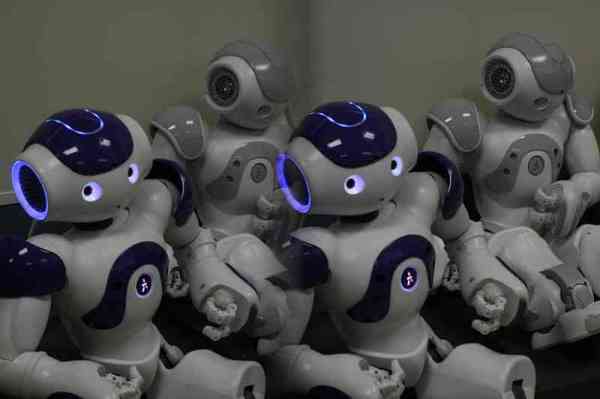Students learn faster when learning from robots that make mistakes. The counter-intuitive study finds that Japanese children learn English quicker when they correct the intentional translation errors of a toy robot–exploiting a well-known fact among educators that students learn best when they help teach others. Robots that appeared to “learn” from the instruction of their human instructors also inspired the students to continue teaching, “Anything that gets a person more actively engaged and motivated is going to be beneficial to the learning process,” explains the director of the Socially Intelligent Machines lab at the Georgia Institute of Technology in Atlanta, Andrea Thomaz, “So needing to teach the robot is a great way of doing that.”
In the study, simple humanoid robots teach English by drawing shapes and translating their meaning. The experimental study found that 19 children, between the ages of 4 and 8, learned best when the Nao toy robot didn’t always make the correct translation, and could learn from students’ corrections. Researchers Shizuko Matsuzoe and Fumihide Tanaka will present the findings next month at the Ro-Man symposium on robot and human interactive communication.
[Via Digital Trends, via New Scientist]
[Image Credit: Wikimedia user PDTillman]
